 Petzlover
Petzlover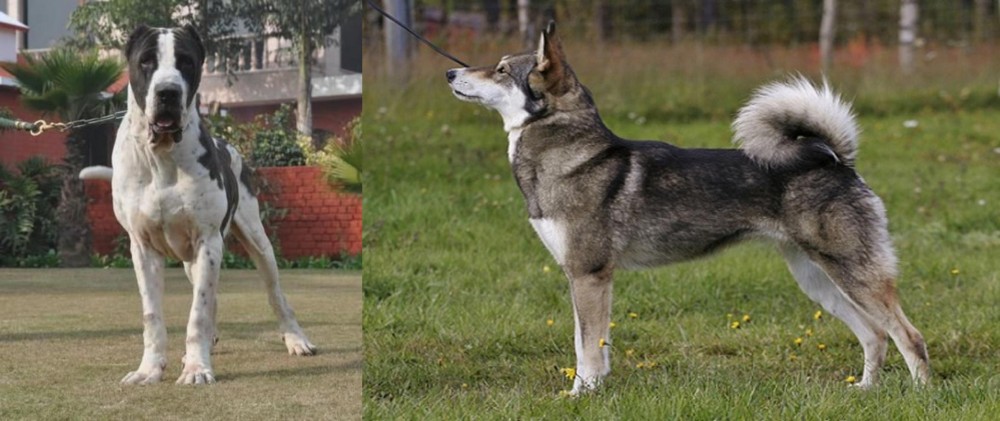 Alangu Mastiff is originated from Pakistan but East Siberian Laika is originated from Russia. Alangu Mastiff may grow 20 cm / 8 inches higher than East Siberian Laika. Alangu Mastiff may weigh 66 kg / 146 pounds more than East Siberian Laika. Alangu Mastiff may live 5 years less than East Siberian Laika. Both Alangu Mastiff and East Siberian Laika has almost same litter size. Alangu Mastiff requires Low Maintenance. But East Siberian Laika requires Moderate Maintenance
Alangu Mastiff is originated from Pakistan but East Siberian Laika is originated from Russia. Alangu Mastiff may grow 20 cm / 8 inches higher than East Siberian Laika. Alangu Mastiff may weigh 66 kg / 146 pounds more than East Siberian Laika. Alangu Mastiff may live 5 years less than East Siberian Laika. Both Alangu Mastiff and East Siberian Laika has almost same litter size. Alangu Mastiff requires Low Maintenance. But East Siberian Laika requires Moderate Maintenance
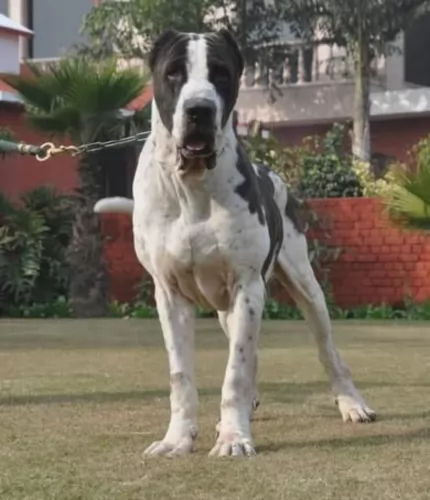 Alangu Mastiff is a breed that ,originates from southern India. Since the very beginning of this breed, it has been used as guard dogs and official dogs of Persian Army. They have been used mostly for wars and as a guard dogs for protection. Also, Alangu Mastiff was used as large gain hunters because of its size and power.
Alangu Mastiff is a breed that ,originates from southern India. Since the very beginning of this breed, it has been used as guard dogs and official dogs of Persian Army. They have been used mostly for wars and as a guard dogs for protection. Also, Alangu Mastiff was used as large gain hunters because of its size and power.
 The East Siberian Laika Is a Russian dog developed for hunting in Siberia. The breed is a spitz type and good hunting large or small prey. It hunted squirrels and grouse as well as moose, mountain lions and bears. In the cold, snowy Siberia it was also a sled dog. There are four types of Russian Laikas: the West Siberian Laika, the Karelo-Finnish Laika, the East Siberian Laika and the Russo-European Laika.
The East Siberian Laika Is a Russian dog developed for hunting in Siberia. The breed is a spitz type and good hunting large or small prey. It hunted squirrels and grouse as well as moose, mountain lions and bears. In the cold, snowy Siberia it was also a sled dog. There are four types of Russian Laikas: the West Siberian Laika, the Karelo-Finnish Laika, the East Siberian Laika and the Russo-European Laika.
Dog from the Evenki National Territory, the Lake Baikal region, the Maritime Territory, the Irkutsk Province, and the Amur River basin were the breeding groups from which the East Siberian Laika developed. In 1947 the East Siberian Laika was designated as a separate breed from the other Laikas. All 4 Laikas were registered as separate breeds at the All -Union Cynological Congress. Biologist K.G. Abramov is credited with developing the first standard for the breed.
The breed is recognized by the American Canine Association, Inc (ACA), the Dog Registry of America (DRA) as well as the FCI. They are not recognized by the UKC or the AKC. Only the government breeds the East Siberian Laika in Russia.
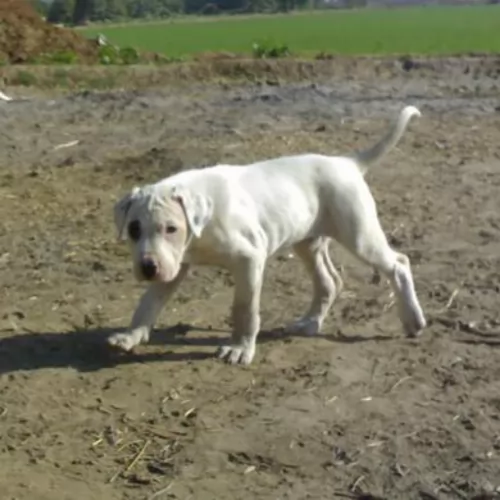 Weight of Alangu Mastiff depends but approximately, male weight is 70-90kg, while females are 60-70kg. While males height is 76-86cm. Females are slightly smaller with an average height of 75-80cm.
Weight of Alangu Mastiff depends but approximately, male weight is 70-90kg, while females are 60-70kg. While males height is 76-86cm. Females are slightly smaller with an average height of 75-80cm.
Lifespan depends drastically on every breed, but it is approximately 8-10 years.
The average litter size of Alangu Mastiff is 6-8 puppies.
Another Name for Alangu Mastiff is Sindh Mastiff.
 Within the East Siberian Laika there are several different types, but two important ones are the Evenki and Irkutsk. Of all the Laikas, the East Siberian is the most diverse in physique and in color. It is a rangy dog, heavy boned and proportionately appears square. It has triangular, erect ears and a tail that curves over his back. The shape of his head can vary within the regions and the types.
Within the East Siberian Laika there are several different types, but two important ones are the Evenki and Irkutsk. Of all the Laikas, the East Siberian is the most diverse in physique and in color. It is a rangy dog, heavy boned and proportionately appears square. It has triangular, erect ears and a tail that curves over his back. The shape of his head can vary within the regions and the types.
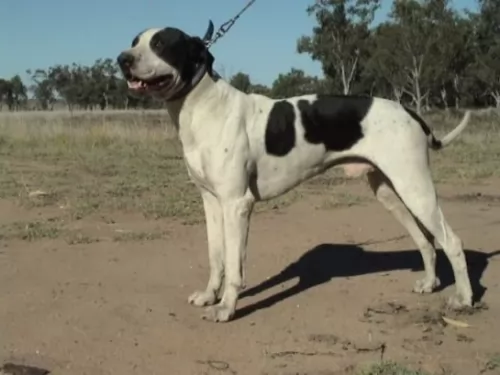 Alangu Mastiff is a very powerful breed. They are a giant breed that is very strong and protective. If you are first time owner, you definitely don’t want this breed as your first pet. They can be very aggressive, and if you are not a dominant owner who knows what he is doing all the time, you can have a lot of troubles with this breed. Alangu Mastiff is a guard dog, and they tend to protect the family no matter what is happening. Of course, with proper care and socialization, they can be wonderful pets that love family, and they can be gentle with children too. Basically, it is very important to socialize them from the earliest age. Alangu is also very hard to train, so you have to be patient and devote a lot of time to train your dog properly. Since they are large dogs, they require a lot of exercises. Walking with the leash is not enough for this breed. They need to run to be fully happy. They can be very aggressive towards other dogs, so it is not very recommendable to spend time with other pets, at least not if they are not socialized. If you train them from an early age, then you should still be careful how your dog behaves around other pets and animals. Don’t get this wrong, Alangu can be a wonderful pet for the whole family, but you have to be careful and well-trained for this breed. They require a lot of attention, patience and time, but overall they can be amazing pets.
Alangu Mastiff is a very powerful breed. They are a giant breed that is very strong and protective. If you are first time owner, you definitely don’t want this breed as your first pet. They can be very aggressive, and if you are not a dominant owner who knows what he is doing all the time, you can have a lot of troubles with this breed. Alangu Mastiff is a guard dog, and they tend to protect the family no matter what is happening. Of course, with proper care and socialization, they can be wonderful pets that love family, and they can be gentle with children too. Basically, it is very important to socialize them from the earliest age. Alangu is also very hard to train, so you have to be patient and devote a lot of time to train your dog properly. Since they are large dogs, they require a lot of exercises. Walking with the leash is not enough for this breed. They need to run to be fully happy. They can be very aggressive towards other dogs, so it is not very recommendable to spend time with other pets, at least not if they are not socialized. If you train them from an early age, then you should still be careful how your dog behaves around other pets and animals. Don’t get this wrong, Alangu can be a wonderful pet for the whole family, but you have to be careful and well-trained for this breed. They require a lot of attention, patience and time, but overall they can be amazing pets.
 The East Siberian Laika is bred to hunt and hunt large prey as well as small. For this reason, he usually doesn’t get along well with other dogs or other large predators. Other wise he is a calm; well-mannered dog and he can be a very good watch dog. They are very trainable and make great companion dogs.
The East Siberian Laika is bred to hunt and hunt large prey as well as small. For this reason, he usually doesn’t get along well with other dogs or other large predators. Other wise he is a calm; well-mannered dog and he can be a very good watch dog. They are very trainable and make great companion dogs.
The East Siberian Laika is the calmest and quietest of the four Russian Laikas. They are very affectionate and loyal to their families. They love to walk, jog, hike, run or camp with their family.
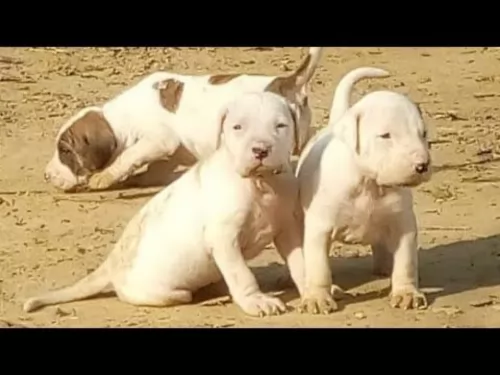 Basically most of the health problems depend on the dog to dog. If you choose puppy carefully, with an adequate examination of professional you will have a healthy dog. Alangu Mastiff is overall healthy breed, but as every other breed, they can develop some issues. Hip dysplasia is can be common for this breed, but again, only if you don’t select your puppy carefully.
Basically most of the health problems depend on the dog to dog. If you choose puppy carefully, with an adequate examination of professional you will have a healthy dog. Alangu Mastiff is overall healthy breed, but as every other breed, they can develop some issues. Hip dysplasia is can be common for this breed, but again, only if you don’t select your puppy carefully.
 Besides injures related to hunting, the East Siberian Laika is prone to several other conditions including dysplasia and:
Besides injures related to hunting, the East Siberian Laika is prone to several other conditions including dysplasia and:
The contents of the dog’s abdomen come through the abdominal wall at the umbilicas. They are surgically repaired.
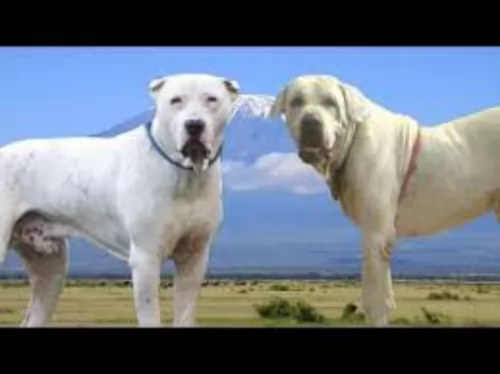 Feeding of your dog highly depends on activity, size, and food that you are feeding your dog. 5-10 cups of high-quality food divided into 2 meals would be enough for an average Alangu Mastiff, but again, you should feed your dog based on activity.
Feeding of your dog highly depends on activity, size, and food that you are feeding your dog. 5-10 cups of high-quality food divided into 2 meals would be enough for an average Alangu Mastiff, but again, you should feed your dog based on activity.
Puppies must eat 3-5 times per day, few cups of high-quality food. They need to eat quality food with a lot of vitamins and minerals to develop into a happy and healthy adult.
Groming is one of the easiest jobs that you should do around your Alangu Mastiff. They are very easy to take care off. Few brushes every now and then would be enough to have perfectly groomed pet. They do not have long coats with a lot of fur so there will be no hair around the house, and maintaining this majestic creature is very easy.
 This is an active, working dog and should be fed accordingly. Probably 1.5-2 cups of high quality dry dog food, two times a day.
This is an active, working dog and should be fed accordingly. Probably 1.5-2 cups of high quality dry dog food, two times a day.
The East Siberian Laika is an ancient breed and fairly healthy though prone to dysplasia:
The hip socket is not formed correctly, and the bone cannot fit properly causing lameness and/or arthritis.
Primary lesions and cartilage surrounding the elbow join and resulting in osteopathic injuries.
Again, this is a working dog. They need at least a half hour of moderate/vigorous exercise every day. A fenced in ran is a plus. You will also need to play with him to keep him from getting bored. Catch, flyball, or agility would all suit this breed well.